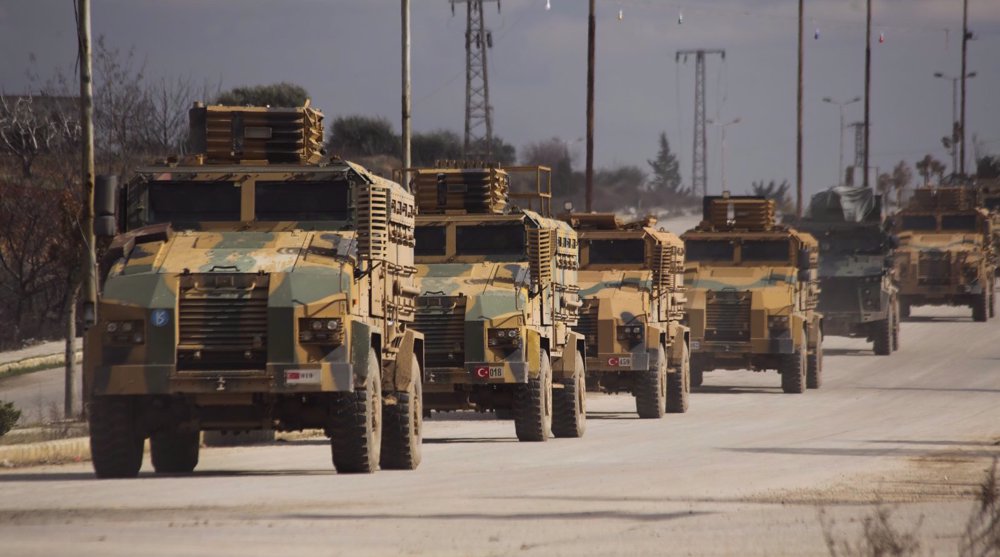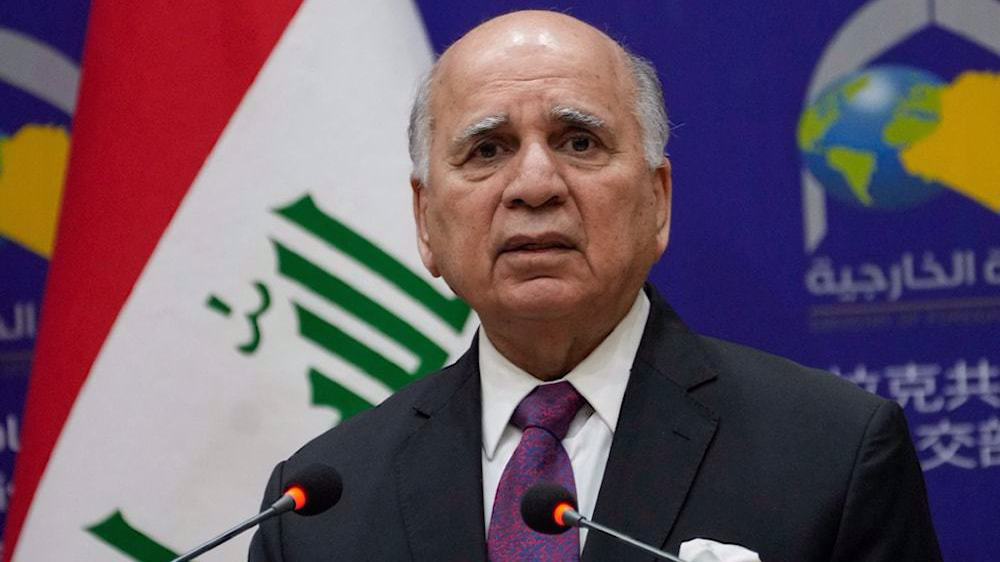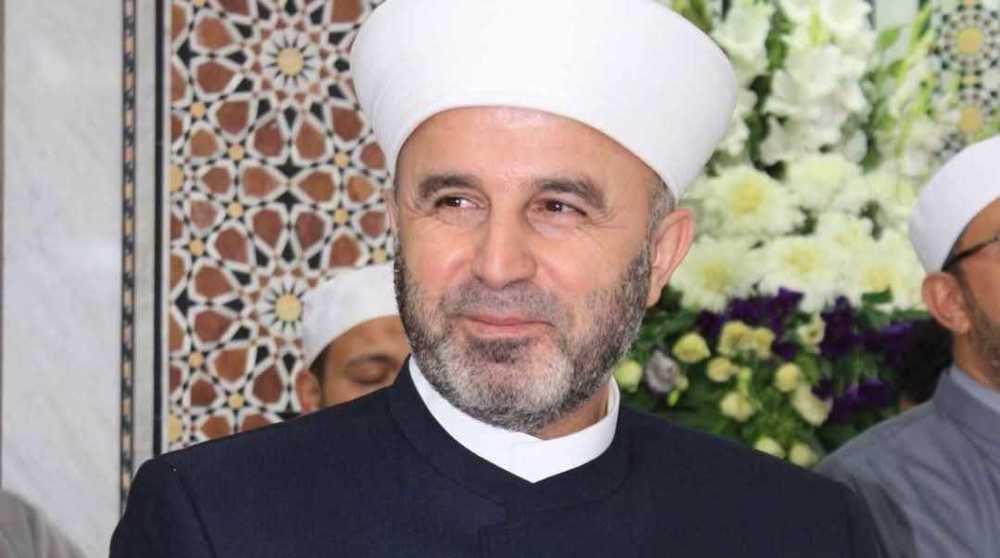What are the intentions of Turkey's impending invasion of northern Syria?
By Arwin Ghaemian
With the world's attention still focused on the ongoing Ukraine crisis, Turkish President Recep Tayyip Erdogan has threatened that his country is preparing a large-scale military campaign to repel Syrian Kurdish militants and establish a buffer zone within Syrian territory.
The situation along the Syria-Turkey border region is already volatile, with daily exchanges of gunfire between Kurdish guerrillas and the Turkish-backed Syrian armed opposition. Military analysts believe that by making such threats, the Turkish strongman, Erdogan, seeks to exploit the escalating conflict in Ukraine to accomplish his long-term ambitions in neighboring Syria.
As a matter of fact, Erdogan is benefiting from several political developments, both globally and domestically, and such a unique combination provides a propitious time for Ankara to unleash a military campaign against northern Syria. Currently, the Russians are terribly embroiled in Ukraine and despite signs of rapprochement in recent months, the Americans also need Erdogan to reconsider his obstinate stance against Sweden and Finland's North Atlantic Treaty Organization (NATO) membership bid.
Turkey has vetoed Finland and Sweden's bids to join NATO, increasing pressure on the two Scandinavian nations to severely restrict the activities of Kurdish exiled dissident parties.
On the other hand, combating Kurdish militants might strengthen Erdogan's Justice and Development Party (AKP) and its political ally, the far-right Bahçeli-led Nationalist Movement Party (MHP), whose popularity is rapidly dwindling, especially at a time when Turkey's economy is teetering on the verge of collapse.
The Turkish economy has been decimated by rising fuel costs, soaring inflation, looming food shortages, and rampant poverty. Therefore, waging a new war against the Kurds may detract the nation's attention away from the country's precarious financial situation. Erdogan desperately hopes that as the Turkish economy deteriorates and inflation climbs to 73.5 per cent, Ankara's onslaught on Kurdish-populated regions in northern Syria could mobilize the ardent nationalist voters. Furthermore, Turkey's next presidential elections are scheduled for 2023, and Erdogan knows well that earlier attacks against the YPG in northern Syria have bolstered his position.
At the same time, Erdogan recently revealed his plans to establish a 30-kilometre buffer zone on the southern border with Syria. In fact, Turkey strived to establish such an area in 2019, but the Turkish military failed to fulfil this long-coveted goal.
According to Turkish authorities, Ankara is now determined to construct thousands of housing units in the regions under its control to ensure the "voluntary return" of one million Syrian refugees to their war-torn homeland. Estimates say that 7.3 million Syrian refugees are living in Turkey.
In fact, the Turkish government attempts to destabilize Kurdish-controlled territories by building thousands of small housing units mostly for Syrian Arabs in districts such as Afrin and Ras al-Ayn, located next to Kurdish communities, which might ultimately result in an immense demographic shift. If Erdogan becomes successful in implementing his schemes to relocate approximately one million Syrians in northern Syria, most of whom are Arabs, it would be a catastrophic blow to Kurdish hopes for an autonomous region in northern Syria.
In three previous military operations, Turkey has occupied vast swathes of Syrian territory, including the strategic towns of Afrin, Tell Abyad, and Jarabulus.
But it seems that the Turkish military is allegedly planning to take control of more Syrian districts, including Tell Rifaat and Manbij. According to military specialists, Ankara believes the Syrian Kurdish militants, also known as the People's Defense Units (YPG), use Tell Rifaat as the primary base for attacking regions captured by the Turkish-backed Syrian mercenaries. Ankara also desires to sever all remaining supply lines between the YPG and its PKK—the outlawed Kurdistan Workers' Party (PKK), which has been waging a devastating war since the 1980s to gain independence for Turkey's Kurdish minority—allies by striking Syria's northern areas.
Since 2016, Turkey has launched three military operations inside Syria to target the US-backed YPG, which Turkey deems a terrorist organization and a Syrian offshoot of the PKK.
There are also emerging reports indicating that the Turkish army may approach the flashpoint town of Kobanî (officially Ayn al-Arab), where the Kurdish forces defeated ISIS terrorists in 2015.
Reacting to the unfolding developments in the Syria-Turkey border regions, the Syrian Ministry of Foreign Affairs and Expatriates released a communiqué on Saturday, June 4, 2022, condemning any potential Turkish military invasion of northern Syria, describing it as a flagrant breach of Syrian sovereignty and territorial integrity, which constitutes an infringement of all international laws and conventions. The statement added that Ankara's incursion into Syrian territory would breach prior agreements reached through the Astana process, pose a grave threat to peace, stability, and security in the Middle East, and undermine internationally-sponsored agreements on the lines of Syria's de-escalation zones.
Human rights advocates fear Turkish troops would perpetrate war crimes and atrocities, including ethnic cleansing of Kurdish civilians, if it launched an all-out military assault in northern Syria, vying to secure its southern borders.
If this time Turkey accomplishes its avowed military objectives despite the Syrian government's vehement opposition, the entire border zone west of the Euphrates River will be devoid of PKK, YPG, and the Kurdish-led Syrian Democratic Forces (SDF).
In this scenario, the so-called Free Syrian Army, which receives all of its equipment and funding from Turkey, expands its dominance west of the Euphrates, paving the way for Turkey to further encroach on Idlib and even Aleppo.
Finally, it would be in the best interests of all parties involved in the crisis if Ankara pursued a diplomatic, rather than a military, solution in order to preclude another deadly confrontation in Syria, which has been ravaged by ceaseless bloodshed and claimed the lives of hundreds of thousands of civilians during the past 11 years.
Arwin Ghaemian is a PhD student at Tehran University, specializing in Iranian Qajar history. He resided in Arabic countries for nearly two decades. His expertise is Iran's modern history as well as the Middle East's socio-economic and security issues.
(The views expressed in this article do not necessarily reflect those of Press TV).
VIDEO | Iran's 'Eqtedar' (Power) maneuver
Israel hits HTS military target in Syria for 1st time since fall of Assad
VIDEO | Press TV's news headlines
Israel has slaughtered 13,000 students in Gaza, West Bank
VIDEO | More Zionist than Zionists: Biden’s legacy to be defined by Gaza genocide
Hamas confirms handing approval of Gaza ceasefire deal to mediators
VIDEO | Iran: Show of strength
UNRWA will ‘stay, deliver’ aid to Palestinians despite Israel’s ban: Lazzarini










 This makes it easy to access the Press TV website
This makes it easy to access the Press TV website